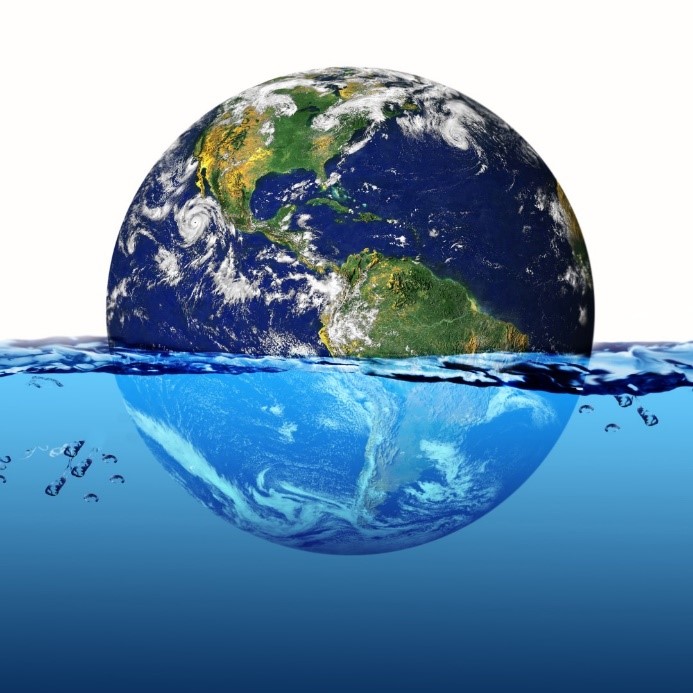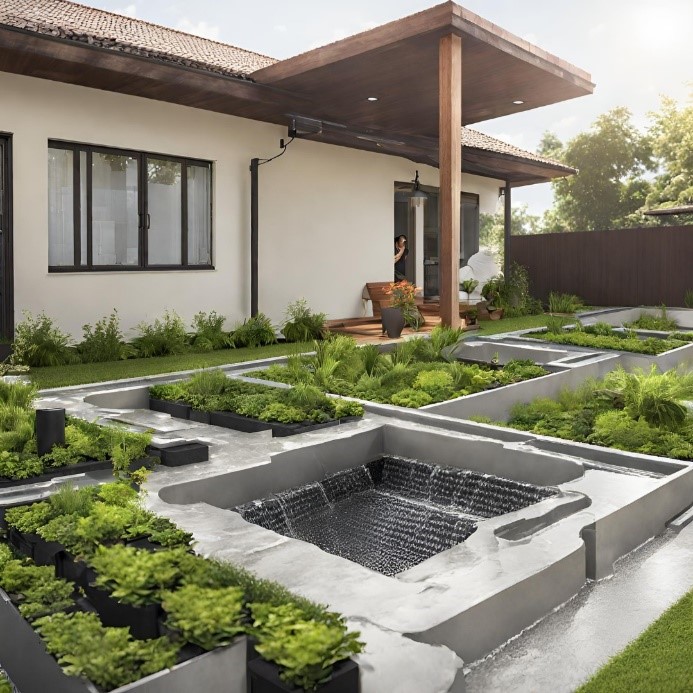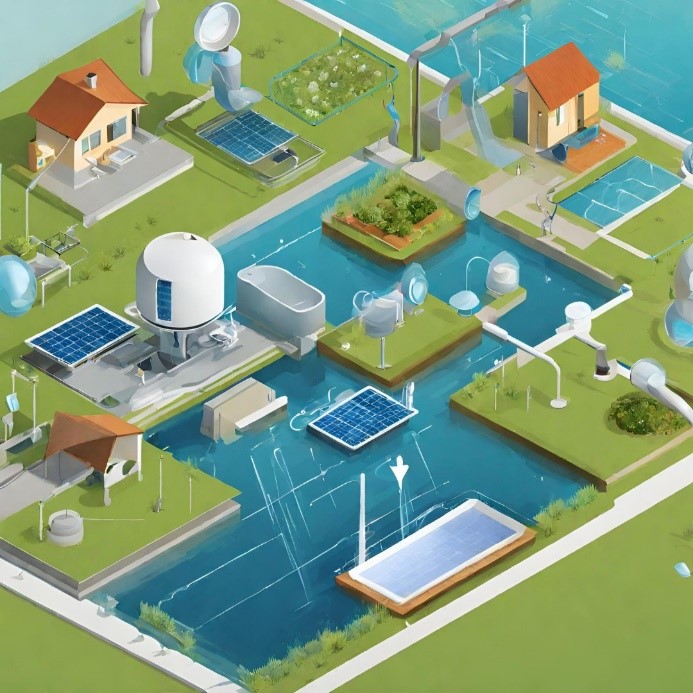Welcome to FARMLAND RAINWATER HARVESTING SYSTEM (FRHS) or Rainy Filters (hereinafter referred to as ‘FRHS’ or ‘Rainy Filters’ or ‘Company’). Rainy Filters provide its services to you, subject to the following terms and conditions. If you access this web site or visit http://www.rainyfilters.com/ , you accept these Terms and Conditions of Use, as well as our other terms and conditions on this web site, such as our Privacy Policy, Cookie Policy and Disclaimer. Please read them carefully. In addition, when you use any current or future Rainy Filters service on this web site, you also will be subject to the guidelines and conditions applicable to such service. All products /Services and information displayed on http://www.rainyfilters.com/ constitute "An invitation to offer". Your orders for purchase constitute your offer which shall be subject to the terms and conditions as listed below. http://www.rainyfilters.com/ reserves the right to accept or reject your offer.
APPLICABLE LAWThis site is created and controlled by Rainy Filters. The laws of India shall apply and courts in Bengaluru, Karnataka State only shall have jurisdiction in respect of all the terms, conditions and disclaimers. Rainy Filters reserves the right to make changes to the web site and the terms, conditions and disclaimers at any time and without information to the customers/users of the services/web site of the Company.
DEFINITIONS
- 1. "Agreement" means the terms and conditions as detailed herein including all schedules, appendices, annexures, privacy policy etc., and will include the references to this agreement as amended, notated, supplemented, varied or replaced from time to time.
- 2. "http://www.rainyfilters.com/" / "Rainy Filters" / "web site " means the website or site or the online shopping platform and the services provided by it owned and operated by FRHS or Rainy Filters which provides a venue to the users of http://www.rainyfilters.com/ to view and/or buy the products listed and/or information on the said website.
- 3. "Vendor" / "seller" /"affiliates" shall mean the person or any legal entity who offers for sale, sells the products on the http://www.rainyfilters.com/
- 4. "Customer" / "buyer" shall mean the person, user of the website or any legal entity who makes the offer for sale on http://www.rainyfilters.com/ by placing an order or floating an enquiry for and or purchases any products through the platform of www.rainyfilters.com.
- 5. "User" / "you" means and includes any person or an entity or any legal entity using or accessing the services provided on this site.
- 6. “Product/Products" means and includes any goods/ merchandise/ products/ services/ offers/ display items that are uploaded / showcased/ displayed on www.rainyfilters.com and the related description, information, procedure, processes, warranties, delivery schedule, etc.
ELECTRONIC COMMUNICATIONWhen you visit www.rainyfilters.com or send e-mails to us, you are communicating with us electronically, you consent to receive communications from us electronically. We will communicate with you by e-mail or by posting notices on this web site. You agree that all agreements, notices, disclosures and other communications that we provide to you electronically satisfy any legal requirement that such communications be in writing.
COPYRIGHT AND TRADEMARKSUnless otherwise stated, copyright and all intellectual property rights in all material presented on the site (including but not limited to text, audio, video or graphical images), trademarks and logos appearing on this site are the property of Rainy Filters, its parent, affiliates and associates and are protected under applicable Indian laws. You agree not to use any framing techniques to enclose any trademark or logo or other proprietary information of Rainy Filters. Any infringement shall be vigorously defended and pursued to the fullest extent permitted by law.
PERMISSION AND SITE ACCESSRainy Filters grants you a limited license to access and make personal use of this site and not to download or modify it, or any portion of it, except with express prior written consent of Rainy Filters. This license does not include any resale or commercial use of this site or its contents; any collection and use of any product listings, descriptions, or prices; any derivative use of this site or its contents; any downloading or copying of account information for the benefit of another merchant; or any use of data mining, robots, or similar data gathering and extraction tools. This site or any portion of this site may not be reproduced, duplicated, copied, sold, resold, visited, or otherwise exploited for any commercial purpose without prior express written consent of Rainy Filters. You may not frame or utilize framing techniques to enclose any trademark, logo, or other proprietary information (including images, text, page layout, or form) of Rainy Filters and our affiliates without express written consent. You may not use any meta tags or any other "hidden text" utilizing Rainy Filter's name or trademarks without the express written consent of Rainy Filters. Any unauthorized use terminates the permission or license granted by Rainy Filters.
CHANGES / PRODUCT DESCRIPTIONRainy Filters reserves the right to suspend / cancel, or discontinue any or all products or service at any time without notice, make modifications and alterations in any or all of the content, products and services contained on the site without prior notice. If a product offered by www.rainyfilters.com is not as described, your sole remedy is to return it to us in unused condition within seven (7) days of delivery.
USER ACCOUNTNotwithstanding other legal remedies that may be available to Rainy Filters, Rainy Filters may in its sole discretion limit user activity by immediately removing user listing either temporarily or indefinitely or suspend or terminate user membership, and/or refuse to provide user with access to the site: If the user is in breach any of the terms and conditions of this agreement and/or the terms and conditions of usage of Rainy Filters;
- If the user has provided wrong, inaccurate, incomplete or incorrect information;
- If your actions may cause any harm, damage or loss to the other users or Rainy Filters
Illegal and/or unauthorized use of the service, including unauthorized framing of or linking to the Rainy Filters site will be investigated, and appropriate legal action will be taken, including without limitation, civil, criminal and injunctive redress.
RISK OF LOSSAll items purchased from www.rainyfilters.com are made pursuant to a shipment/dispatch contract. This means that the risk of loss and title for such items pass to you upon our delivery to the carrier/courier.
FORCE MAJEURERainy Filters shall have no liability to you for any interruption or delay in access to the Site irrespective of the cause.
POLICY UPDATESWe reserve the right to change or update this policy at any time by placing a prominent notice on our site. Such changes shall be effective immediately upon posting to this site. If any of the terms & conditions shall be deemed to be invalid, void or for any reason unenforceable, that term shall be deemed severable and shall not affect validity & enforceability of any remaining term & condition.
ENTIRE AGREEMENTThese Terms of Service constitute the entire agreement between the parties with respect to the subject matter hereof and supersedes and replaces all prior or contemporaneous understandings or agreements, written or oral, regarding such subject matter. The clauses as above shall survive the termination or expiry of this agreement.
GENERALThe waiver of a breach of any term hereof shall in no way be construed as a waiver of any other term or breach thereof. The person agreeing to these terms & conditions of use represents & warrants that such person is authorized to bind and thus bind his or her principal or employer and has adequate legal capacity to enter into these terms and conditions of use.
OUR ADDRESSHead Office: SGS Complex, K.M.Road, Chikmagalur PIN-577101, Karnataka India Phone: 08262-231390 Fax: 08262-231393
Bengaluru Office: Farmland Rainwater Harvesting System #648, 11th cross, 7th block, Jayanagar Bangalore – 560082 Mob: 094480 76595 / 094481 30524 / 094494 43232 Telefax: 080-26766252
DISCLAIMERThis site is provided to you by Rainy Filters On "As is" and "As available" basis. Rainy Filters does not warrant that this site, its servers or email sent from rainyfilters.com are free of viruses and other harmful components. All products displayed in our catalogues may not be readily available for sale due to product unavailability or for any other reason.
INFORMATION LIABILITYIn no event shall rainyfilters.com or any of its sources be liable for any direct, special, incidental, indirect, or consequential damages whatsoever (including but not limited to: damages for loss of business profits, business interruption, loss of business information, or any other pecuniary loss) arising out of the use of the information made available on this web site. Information on the rainyfilters.com web site may not be reproduced, copied, or altered without the express written consent of rainyfilters.com and its affiliates.
FARMLAND RAINWATER HARVESTING SYSTEM (FRHS) WARRANTY TERMS AND CONDITIONS FOR RAINY FILTERS
FARMLAND RAINWATER HARVESTING SYSTEM (FRHS) warrants all products manufactured by it to be free from defects in workmanship and materials, under normal usage and conditions, for a period of Two (2) years from the original invoice date. This warranty covers the repair or replacement of any faulty components of the said filter at our discretion. There is no coverage of whatsoever nature provided for lost, self-repaired or destroyed filters or the filters not attached with genuine spare parts. Thereof and in accordance with the user manual, and shall provide warranty services subject to the following:
- 1.This Warranty covers the defects resulting from defective filter components, materials or manufacturing, if such defects are revealed during the period of 24 months since the date of purchase.
- 2.The filter is considered defective if it fails to perform the functions as indicated in the user manual, brochure, technical guide or any other similar documents supplied with the filter.
- 3.The Warranty does not cover consumables or parts of limited regular functionality that might be employed during installation.
- 4.The Warrantor shall not be held responsible for the loss and damage caused due to restoration/alteration/modification of any filter component.
- 5.The defects and damages revealed during the Warranty period shall be removed free of charge exclusively by the Warrantor only on producing original invoice copy issued by authorized supplier or other similar documents.
- 6.The Warrantor shall prefer to repair the defective/malfunctioned filter device/component over the replacement. In very inevitable circumstance only, the Warrantor shall replace the said filter device/component.
- 7.Repair and replacement time of defective filter/components may be subjected to extension.
- 8.Warranty services will be provided under the following conditions:
a. Immediately and effectively notify Warrantor about determined filter’s defects and cease any further usage.
b. A copy of commercial invoice should be provided to the warrantor along with the defective/damaged filter.
c. The serial number of delivered defective/damaged filter device must match the serial number present in Warrantor’s data base.
f. The defective/damaged filter (in parts or whole filter) must be appropriately packaged during its loading, transportation and unloading.
- 9.The warrantor reserves the right to charge the Warranty beneficiary with the costs of service, transportation and customs clearance if the defect does not fall within the scope of this Warranty or the device has not been proven defective.
- 10.The Warranty does not cover:
a. Damages caused by acts of God, floods, fires, lighting or other natural disasters, wars, chemical exposure, heat sources, unexpected events or other external factors.
b. Mechanical/physical damages resulting from incorrect installation, usage or other activities inconsistent with the user manual or technical guide.
c. If the filter that has been tampered with by the Warranty beneficiary or any other third party.
d. Damages/defects resulting from the usage of improper or aftermarket components.
e. Damages/defects due to the user's misuse or lack of knowledge.
- 11.The replaced defective filter or components shall become the property of the Warrantor.
- 12.The Warrantor reserves the right to refuse to provide any Warranty services if it would result in a breach of warranty terms and conditions.
- 13.This Warranty Agreement shall not be interpreted to render Rainy Filters for injuries or damages of any kind- direct, consequential or contingent to persons or property.
- 14.Rainy Filters shall not be held liable for repairs or alterations made without prior written approval for products clogged by suspended matter, precipitates or biological growth, or for failure resulting from the lack of proper maintenance.
- 15.Under no circumstances, the liability of Rainy Filters shall exceed the value of the product at the time of availing the warranty benefits if any applicable, by the warranty beneficiary
- 16.Under no circumstances are the terms mentioned above negotiable and no employee of Rainy Filters has the authority to supersede them.
- 17.Any disagreements and obligations based upon the purchase of Rainy Filters products and thereby imposed on Rainy Filters shall be governed by and construed according to the laws of India and subject to the jurisdiction of Bengaluru, Karnataka State Courts only.
- 18.This Warranty Terms and Conditions may be changed if the Buyer and the Guarantor establish different conditions in a separate agreement.





